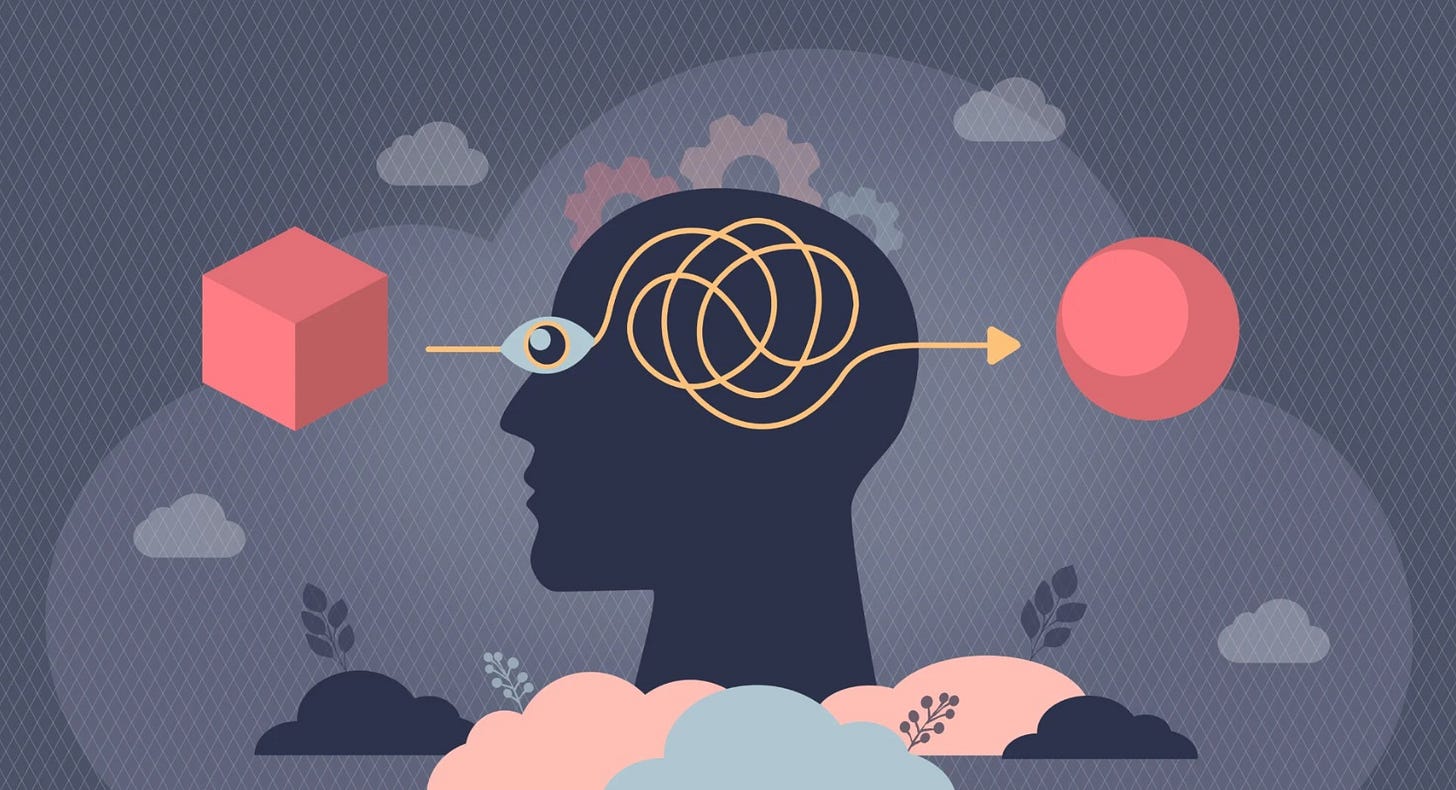Watch Out for These 6 Thought-Biases That Threaten Your Closest Relationships
Sure, our partners need to consider us and validate us, and they probably get that wrong sometimes. But also, we are responsible for noticing how our mood influences how we respond to others.
5-Star review of my book This is How Your Marriage Ends:
“More effective than therapy. My husband and I have been going to therapy on and off for over 5 years and nothing has given me more hope for restoring our relationship than this book has. This was speaking in his voice and he actually listened. Can’t say enough good things.” - Ashleigh L.
This is How Your Marriage Ends is 40% off on Amazon, available in local bookstores, or you can order an author-signed copy here from my friends at Islandport Media.
I spend a lot of time thinking about, talking about, and writing about how people accidentally erode trust in their relationships.
The aim isn’t to reduce trust, of course. But it happens anyway. It’s the unintended consequence of one or both relationship partners not noticing, or not paying attention to how their actions and words impact the other.
The so-called little things.
I believe the most important and loving thing we can do for one another is putting mindful discipline and intentionality into noticing how what we do impacts those we love and live with.
But there’s a flipside too. I’m a strong proponent of validating others’ experiences. And I’m strongly against any unhealthy or manipulative relationship behavior designed to discredit or shift blame to someone else. Anything that shirks personal responsibility.
Despite that, at least some of the work of mindful consideration in our relationships must fall to how we react to the pain points or negative experiences we encounter from our partners. Surely we can agree that at least some percentage of the responsibility pie chart depicts a slice illustrating that certain reactions contribute to repair and trust in the relationship, while others contribute to trust erosion and all-around bullshittery.
And that’s what we’re talking about today—how our reactions, our beliefs, our moods, our mindset, factors into the amount of trust and security in our relationships.
I’m always reading more books than I can dedicate myself to at any one time (thanks ADHD!), and Dr. Julie Smith’s Why Has Nobody Told Me This Before? got my attention recently when she began to educate me on the symbiotic relationship between thoughts and feelings.
Most of us have heard our entire lives that positive thinking and healthy mindsets contribute to healthier bodies and better states of being. But what we’ve heard less about—or not heard about at all—is that low mood, or bad feelings, have a measurable effect on our minds.
In simpler terms, how we feel influences how we think, and if we feel bad, we might believe some shit that isn’t entirely true, or perhaps not true at all. And when we act on those beliefs—these thought biases—we can contribute to conflict and trust erosion and insecurity in our most important relationships.
As always in relational work, the first step is learning how to notice, and that’s all I’m asking you to consider today. Please consider paying attention to the following thought biases that can occur when you don’t have enough sleep, when you’re stressed, when you’re grieving, when you’re depressed, when you’re experiencing anything physically that might be interfering with the clarity with which you’d prefer to see the world (or more specifically, context around your partner’s words and actions).
These are the Thought Patterns That Make You Feel Worse
1. Mind Reading
“You might notice that you feel the need for more reassurance from others when your mood is low,” Smith says. “If you don’t get that extra reassurance you might automatically assume that they are thinking negatively about you. But that is a bias, and it is quite possible that you are your worst critic.”
Feeling secure and achieving a sense of belonging, community, inclusion in our lives requires that we have a grasp on what people around us are thinking and feeling.
“It’s crucial for humans,” Smith says, because we live in groups and depend so much on those around us. Because of this, we spend a lot of time, consciously or subconsciously making guesses about what others are thinking and feeling.
When we’re not feeling our best, we’re more likely to believe our worst instincts. Our worst, most cynical, most-afraid-of-it-being-true guesses.
As I hope you’re imagining, this is not helpful in relationships.
One of my all-time favorite ideas that will apply to each of these thinking biases is: Don’t believe everything you think.
…
2. Overgeneralization
“When we are struggling with low mood it only takes one thing to go wrong, and we have the tendency to write off the whole day,” Smith says.
You spill some coffee in the morning. It gets on your clothes. You’re trying to hurry out the door, and now you have to change into something less coffee-y, and you’re stressed and frustrated about running late.
These are the moments when it feels like the universe is conspiring against you.
These are the moments where fans of astrology assume Mercury is retrograding them from behind.
I’m as susceptible to undisciplined thought as anyone, just as I’m a threat to leave a used drinking glass by the sink if my brain doesn’t specifically think about the implications of doing so and what it might communicate to someone else.
One of our jobs is to NOT let these types of moments cloud our judgment, or justify unloving behavior toward the people we’ve promised to love.
Keep reading with a 7-day free trial
Subscribe to On the Rocks to keep reading this post and get 7 days of free access to the full post archives.




